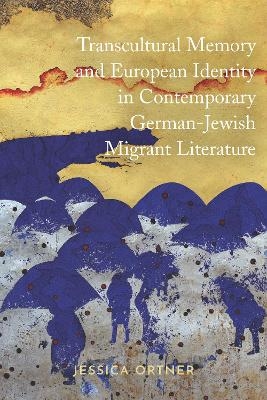
Transcultural Memory and European Identity in Contemporary German-Jewish Migrant Literature
Camden House Inc (Verlag)
978-1-64014-022-6 (ISBN)
Preserving the memory of the Holocaust as a moral and ethical limit case is key to the European Union's attempt to construct a pan-European identity. But with the Eastern expansion of the EU, new member states have challenged the Holocaust's singularity, calling for the traumas of the Stalinist Gulag to be acknowledged much more explicitly. Thus even though Europe has been unified politically, it is divided by its diverging perceptions of the past.
Jessica Ortner argues that German-Jewish writers from Eastern Europe and the GDR who migrated to Germany as refugees during or after the Cold War have responded critically to the need to widen European cultural memory to include the traumatic experiences of the East. The writers focused on include Katja Petrowskaja, Olga Grjasnowa, Lena Gorelik, Vladimir Vertlib, and Barbara Honigmann. A central focus of the book is the "traveling of memories" from Eastern Europe and the GDR to (Western) Germany and Austria. Introducing the term "literature of mnemonic migration," Ortner asserts that these authors' writings negotiate the mnemonic divide between East and West. They criticize the normative memory politics of both Germany and the Soviet Union and address not only the politically explosive question of how to remember both National Socialism and Communism but also the status of Jews in contemporary Germany.
JESSICA ORTNER is Associate Professor in the Department of Culture and Language at the University of Southern Denmark.
Introduction: Writing Against the Backdrop of European Memory Politics after 1989
Part I. Contextualizing Literature of Mnemonic Migration: Political and Aesthetic Settings
1: Politics and Memory: Overcoming the Mnemonic Division of Europe?
2: Setting the Scene: Aesthetic Representations of Europe
Part II. Imaginations of Europe-Nazism and Stalinism Rethought
3: Redefining the Jewish Past: Vladimir Vertlib
4: Family Memory as a Vessel of Amnesia: Katja Petrowskaja
5: The East-West Division through the Lens of the Divided Germany: Barbara Honigmann
Part III. Contesting Germany's Social Framework of Memory
6: Traumatic Recollections: Olga Grjasnowa
7: Dichotomy as a Principle of Mnemonic Migration: Lena Gorelik
Conclusion
Bibliography
Index
| Erscheinungsdatum | 27.06.2022 |
|---|---|
| Reihe/Serie | Dialogue and Disjunction: Studies in Jewish German Literature, Culture & Thought |
| Verlagsort | Columbia, MD |
| Sprache | englisch |
| Maße | 152 x 229 mm |
| Gewicht | 1 g |
| Themenwelt | Geschichte ► Allgemeine Geschichte ► 1918 bis 1945 |
| Geschichte ► Allgemeine Geschichte ► Zeitgeschichte | |
| Geisteswissenschaften ► Sprach- / Literaturwissenschaft ► Anglistik / Amerikanistik | |
| Geisteswissenschaften ► Sprach- / Literaturwissenschaft ► Literaturwissenschaft | |
| ISBN-10 | 1-64014-022-0 / 1640140220 |
| ISBN-13 | 978-1-64014-022-6 / 9781640140226 |
| Zustand | Neuware |
| Haben Sie eine Frage zum Produkt? |
aus dem Bereich


